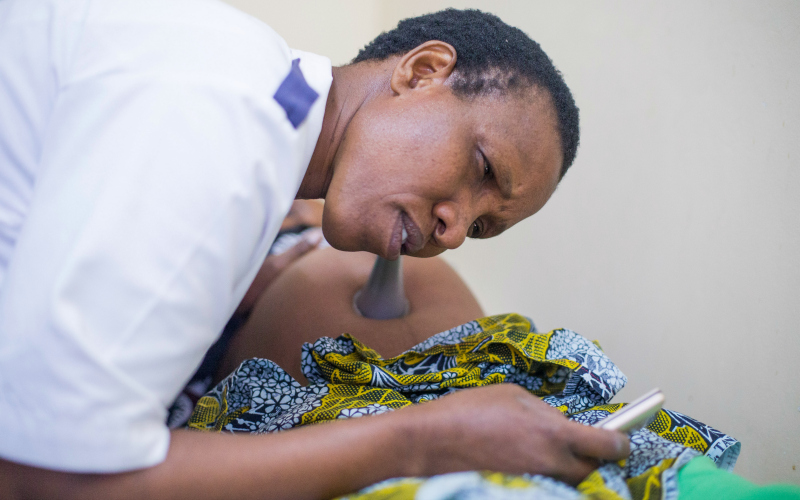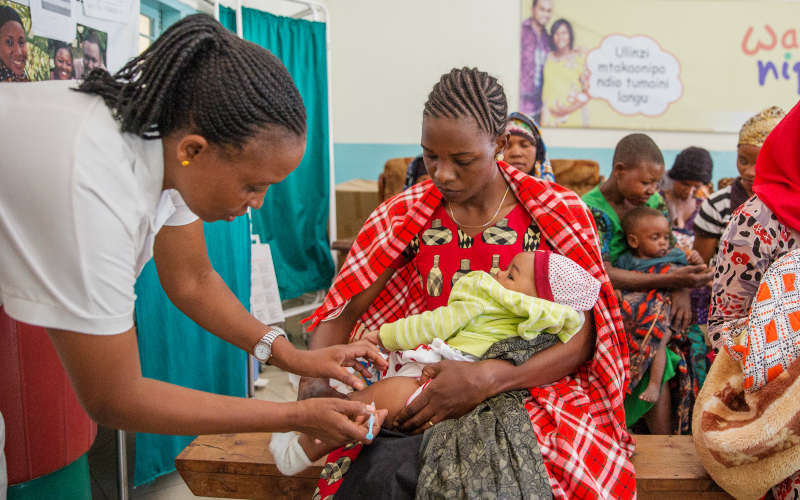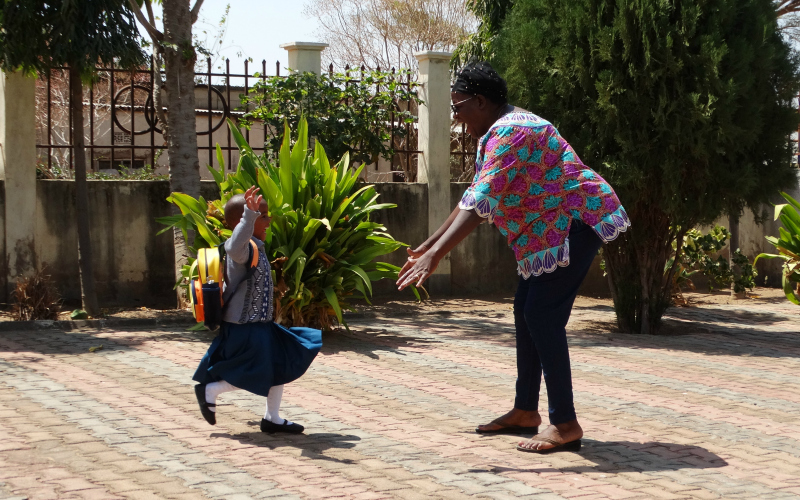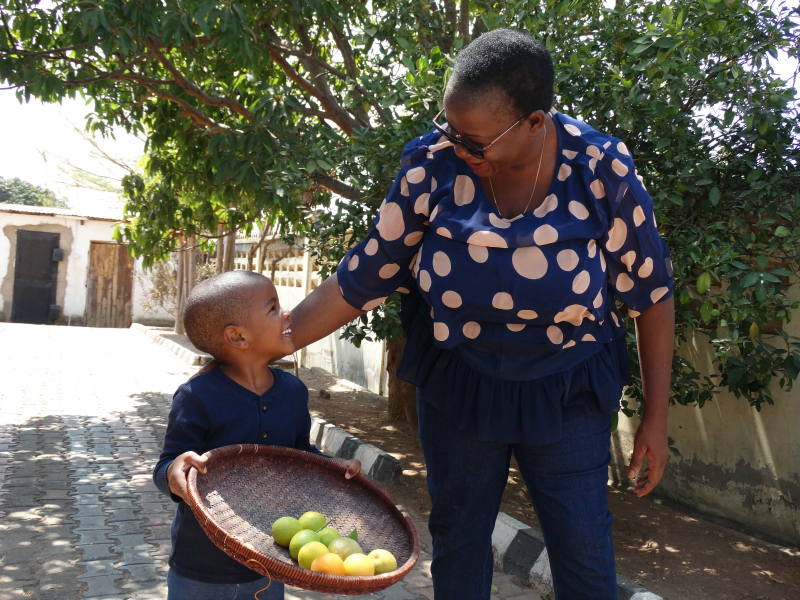“I’m worried to become pregnant again because I’m afraid of dying. I’m scared for the lives of pregnant women.”
Mwivano grew up in Temeke district, an industrious region of Tanzania with a large concentration of low-income residents. It was there that she first witnessed the many health challenges that impoverished women in her community face. This sparked an interest in humanitarian work, long before her own experiences navigating unreliable health systems.
“I am passionate about serving the lives of women and improving maternal, newborn and child health,” Mwivano says.
“Tanzania has a high number of maternal mortality and mortality of children under five years old,” she continues. “I want to use my nutrition background and expertise to focus on this important area and try to save the lives of marginalized women and children in Tanzania.”
At 39 years-old, Mwivano became pregnant for the first time. The excitement she and her husband felt was wiped away when, at 11 weeks, Mwivano miscarried.
Not only did the miscarriage result in loss of pregnancy, it nearly took away Mwivano’s life as well. The doctor had just decided not to resuscitate her when she shot up in bed.
“I spent five minutes without any oxygen because the people who were attending me had to run to find it. They said that black was coming out from my nose and my ears. It was a very serious condition and I nearly died,” she recalls.

Nurse Lucia Msengi Msaru examines first time soon-to-be mother Baraka. Photo: Michelle Siu
Mwivano thinks that her experience has helped her better understand the work that she does. “Having had that experience, I really understand what women in Tanzania face in accessing medical services,” she says.
A preventable tragedy
According to the World Health Organization, every day, close to 830 women around the world die due to preventable conditions during pregnancy and child birth. Over half of the deaths of children under five are also preventable, with things like skilled health providers, and quality obstetric and new born care services. Pregnant mothers do not always receive enough pre-natal check-ups that could catch issues before they become life-threatening.
Pregnant women living in rural areas who come from the poorest families often have the lowest access to these interventions.
“To be a mother is not easy. It also depends on where you’re living. If you’re living in a marginalized community with limited resources, it’s very difficult to access services.” says Mwivano.
 Ikungi Health Centre: A baby is given vaccinations following a training session. Photo: Michelle Siu
Ikungi Health Centre: A baby is given vaccinations following a training session. Photo: Michelle Siu
The second time around
When Mwivano became pregnant for the second time she worried that something would happen again. Although she lived in a rural part of Tanzania throughout her pregnancy, at time of delivery, Mwivano didn’t want to take any chances. “I experienced my pregnancy in rural parts of Tanzania but to give birth I had to travel 720 km to find better health services. With my experience, I really understand what other women in Tanzania face, especially those living far from the capital city.”
Mwivano was determined to follow the health recommendations that she herself prescribes. She started prenatal vitamins within three weeks of pregnancy and took all the supplements recommended by doctors. After Gabriella was born, she breastfed for over two years – health experts recommend at least six months of exclusive breastfeeding.
Today, Gabriella is three and a half years old and she is thriving. Not only has she experienced very few illnesses, her family is amazed by how quickly she is learning.

Gabriella is excited to greet her mom Mwivano after a day at school. Photo: Agness John
“The uptake of learning is incredible. She was the youngest child in her baby class school and she is doing very well. It’s so surprising. She understands so much. She communicates fluently in two different languages – German and Kiswahili, and now we’re adding English. She is very quick in picking things up,” Mwivano says. “She is young but so independent and smart, we are already learning things from her.”
Mwivano is so in love with her baby girl but she knows that she got lucky. “I’m worried to become pregnant again because I’m afraid of dying.” she says. “I’m scared for the lives of pregnant women.”
A helping hand
Mwivano has worked with World Vision since 2012, currently serving as the field staff Project Manager for the 1000 Day Journey in Singida and Shinyanga Regions of Tanzania. The 1000 Day Journey is a five-year initiative funded by Global Affairs Canada to support women and children’s health in very poor communities in Tanzania, Kenya, Bangladesh, Pakistan and Myanmar.
The people of Tanzania are among the most marginalized in the five countries that World Vision’s 1000 Day Journey program serves. But there has been progress. Childhood mortality has greatly decreased from 92 deaths per 1,000 live births in 1991-92 to 43 deaths per 1,000 live births in 2015-16.
Investing in maternal health and early childhood development is one the best investments a country can make to eliminate malnutrition and poverty, reduce gender inequality, stimulate growth and promote peace and stability. Learn more about the critical importance of the first 1,000 days of a child’s life and how World Vision is helping to make a difference.

Mwivano and Gabriella pick fruit. Photo: Agness John
Story by Tiyahna Padmore.